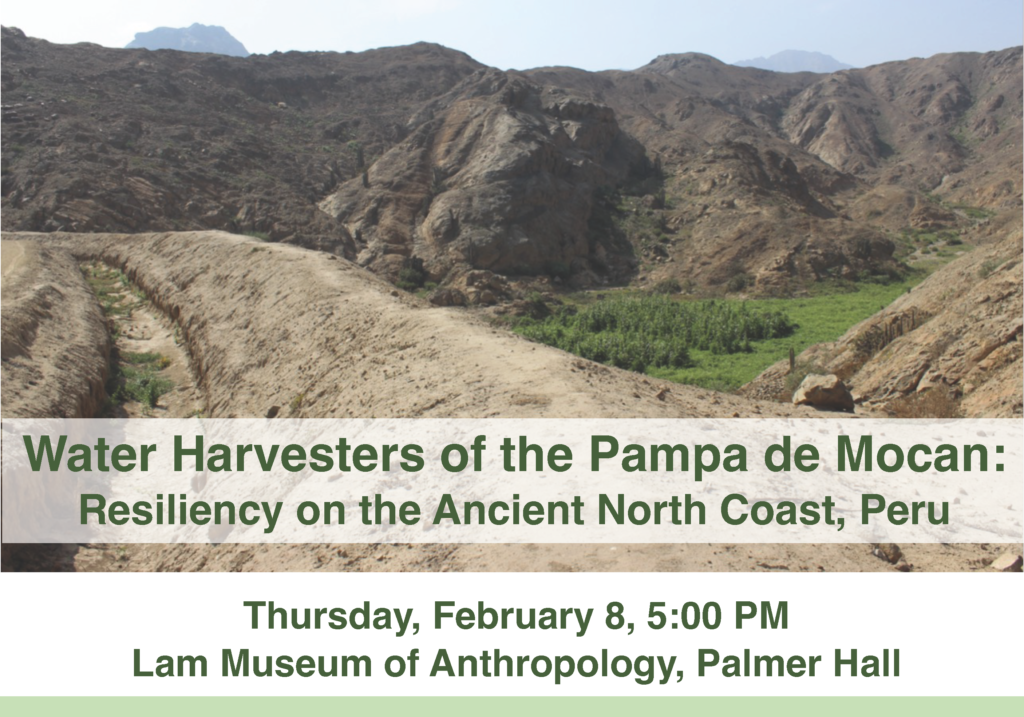Dr. Ari Caramanica lecture Feb. 8

Dr. Ari Caramanica, Assistant Professor of Anthropology at Vanderbilt University, will give a lecture on “Water Harvesters of the Pampa de Mocan: Resiliency on the Ancient North Coast, Peru.” This free public event is sponsored by the Department of Anthropology, Cultural Heritage and Preservation Studies, Latin American and Latino Studies, Environment and Sustainability Studies, and the Humanities Institute (made possible by a major grant from the National Endowment for the Humanities).
Time and location: Thursday, February 8, at 5 p.m. in the Lam Museum of Anthropology (Palmer Hall).
Lecture Abstract: How do societies become resilient to extreme environments and natural disasters? This talk examines past and present responses by agriculturalists to extreme aridity and devastating floods caused by the El Niño phenomenon on the north coast of Peru. The prehispanic landscape known as the Pampa de Mocan presents an agricultural system that co-evolved with these environmental challenges. Preserved in this desert are the vestiges of innovative methods for floodwater farming, flexible technologies built to withstand natural disasters, and resource management strategies; there is also evidence of the enduring impacts and unforeseen consequences of technological choices. Together, these data point to a key to this system’s resilience: prioritizing water and the production of water over land.
